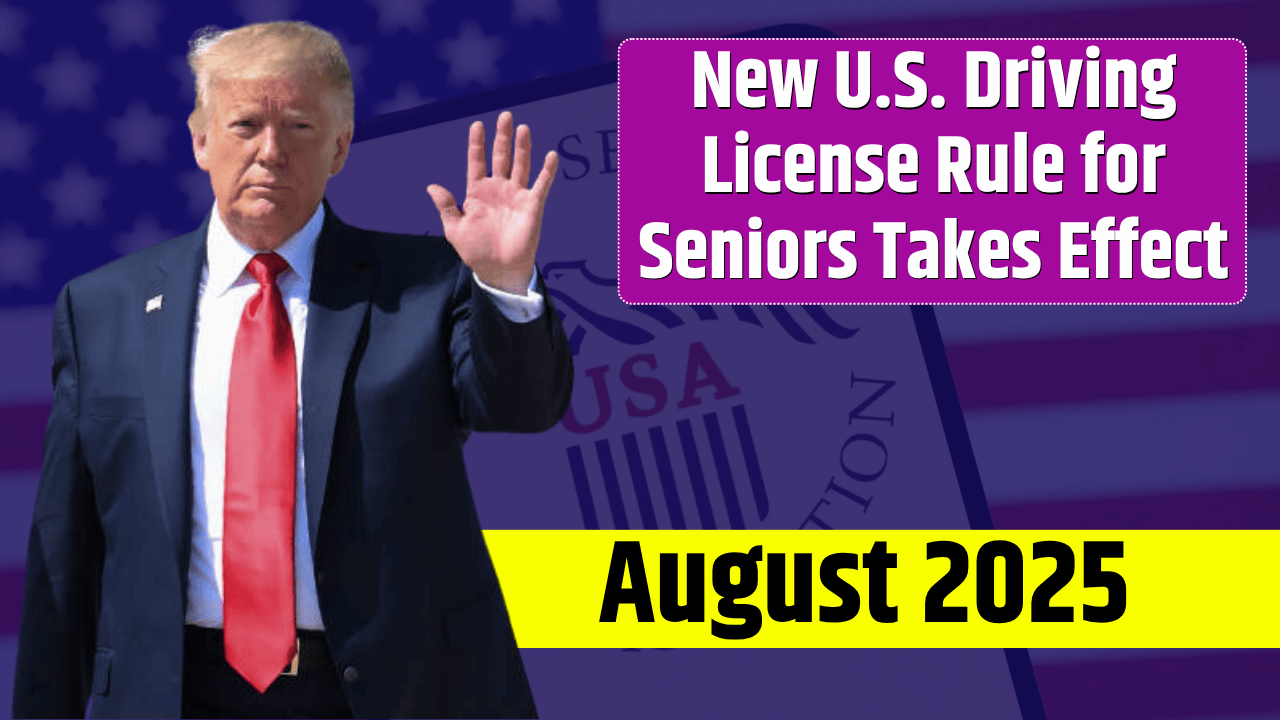Canada’s gearing up for what could be a major shake-up in senior driving regulations—and people have opinions. Starting August 2025 (or so the rumors say), new rules for drivers aged 70 and older are supposedly rolling out across the country. But if you’ve seen the headlines or heard the chatter, you might be wondering: Is any of this actually true?
Let’s pull apart the fact from the fiction. Because right now, it’s a bit of a mess.
Table of Contents
Who’s Really Behind Driver Licensing in Canada
First off, here’s the most important thing no one seems to be saying clearly: driver licensing in Canada isn’t federal. It’s provincial and territorial. Always has been. That means each province sets its own rules—whether you’re 17 or 87.
Some provinces already have policies in place for senior drivers. Ontario, for instance, has a mandatory renewal process starting at age 80 that includes a vision test, written exam, and group education. British Columbia requires a doctor’s medical report starting at age 80, and every two years after. Others, like Alberta, rely more on physician discretion and roadside performance.
As of July 2025, there is no confirmed Canada-wide policy coming into force in August 2025 that forces every 70+ driver to take medical tests or in-person renewals. So if someone’s telling you otherwise, they’re either misinformed—or they’ve skimmed a clicky headline without reading the details.
Read Also- Goodbye to Retiring at 67 – The UK’s New State Pension Age Will Shock Millions
So… What’s Actually Being Proposed?
There is talk of a national framework. Federal and provincial officials have been kicking around the idea of standardizing senior driver assessments. That might include things like:
- A consistent age for reassessments (e.g., starting at 75)
- Uniform medical or cognitive screening guidelines
- Shared rules for in-person renewals
But let’s be real: nothing’s been finalized. Not this summer. Not even this year.
And since provinces guard their autonomy like a toddler guards a favorite toy, getting everyone to agree on a single set of rules won’t be easy.
Legal Gray Zones and Rights Questions
Now we’re getting into murkier territory. There’s growing concern that any blanket rules—especially age-based ones—could violate protections under the Canadian Human Rights Act or provincial human rights codes.
If a law targets drivers just because they’re 70 (without medical cause or specific performance concerns), it could be challenged as discriminatory. Some legal experts have even floated the idea of class-action lawsuits if seniors are unfairly penalized or forced to jump through unnecessary hoops.
That said, public safety is a legit legal exception. If there’s solid evidence linking age-related health issues to impaired driving, and policies are applied fairly, the government could justify tighter rules. But it’s a slippery slope.
The Hidden Cost: Who’s Paying for All This?
Here’s a question that’s getting louder: If a medical exam is required, who covers the cost?
Well, it depends where you live. In some provinces, seniors are stuck footing the bill themselves. A standard driver’s medical exam can cost anywhere from $75 to $150 or more—not chump change if you’re living on CPP and a modest pension.
This financial burden is raising red flags, especially as the cost of living keeps climbing. Advocacy groups are calling for:
- Provincial health coverage of mandatory tests
- Fee waivers for low-income seniors
- Reimbursement policies for required assessments
So far? Crickets in most provinces.
Driving Means Independence—And Losing It Hurts
For many older adults, the ability to drive isn’t just about errands or doctor appointments. It’s about freedom. It’s about identity. Losing that license can feel like losing a part of yourself.
And that makes this whole debate especially emotional.
If stricter testing leads to widespread license suspensions, the ripple effects could include:
- Increased isolation
- Greater reliance on family (who may not be close by)
- Declines in mental and physical health
Some provinces are at least exploring alternatives:
| Support Measure | Status (as of July 2025) |
|---|---|
| Senior-focused transit passes | Available in some cities/provinces |
| Volunteer driving programs | Patchy, mostly rural areas |
| Ride-sharing subsidies | Pilot programs in BC, Ontario |
| Mobility coaching / assessments | Limited but growing |
It’s something, but the support net is still full of holes.
What Should Seniors (and Families) Do Right Now?
If you’re approaching age 70 or have a parent who is, here’s what actually makes sense right now:
- Check your province’s current rules. They haven’t changed as of July 2025.
- Talk to your doctor. Especially if you have conditions that could affect driving.
- Keep records. If you pass medical or cognitive assessments, keep a copy.
- Advocate. Don’t be afraid to contact your MLA or local officials. Your voice matters.
Where This Is Headed
There’s no official federal law requiring driver testing at age 70 in Canada—not now, not in August 2025. But the conversations are definitely heating up.
Between concerns about safety, rights, costs, and mobility, this debate isn’t going away anytime soon. It’s the kind of issue that touches not just policy but people’s lives. Their routines. Their dignity.
So yeah, pay attention. But don’t panic. And definitely don’t believe every headline you see.
FAQs
Is there a national law requiring all drivers 70+ to get tested in August 2025?
No. Licensing is handled by provinces, and no national rule has been passed.
Are all provinces introducing new rules for senior drivers?
Not as of July 2025. Some provinces may revise existing policies, but nothing is universal.
Is this about age discrimination?
That’s part of the concern. Policies must be based on medical ability, not just age.
Do seniors have to pay for medical exams?
In many provinces, yes. Some are calling for these costs to be covered, but it’s not yet standard.
Could this end up in court?
Potentially, especially if any rules seem to violate human rights protections.





















